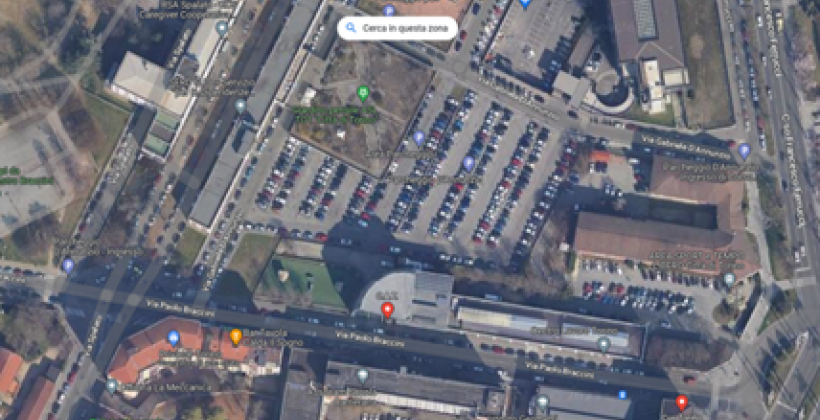
Location
Description
The identified district consists of an area of approximately 260.000 m2, that comprises of the main university campus of the Politecnico di Torino. The campus area includes classrooms departments and laboratories. Within this area, several other buildings of interest are located: (1) Cittadella Politecnica, which includes the headquarters of LINKS and the Politecnico business incubator; (2) Energy Center, a university-owned institute and dedicated building (Test Area #1), which provides offices and lab spaces to energy companies and that brings together a multidisciplinary group of researchers in the field of energy technology and policy studies; (3) IREN Thermal Plant, which supports the district heating network operations during peak demand; (4) 3 University Dormitories; (5) 2 Municipal buildings, which hosts the Sport department and the employment center offices (Test Area #2); (6) some private residential and commercial buildings.
Demo Site Expected Impact
| The district is already provided with PV panels that will be used to provide energy to the 3 municipal buildings (offices and sports center), wall-boxes for e-vehicle recharging will be installed to be used both by the municipal e-vehicle fleet and by other private users. We foresee retrofitting the office buildings and installing meters for consumption monitoring and management in 2 years. The aim of the Municipality within the project is to understand which actions/measures should improve the potential PED performances and how much it could be extended. Moreover, when possible, we would like to simulate (and test) different smart charging scenarios to optimize the district’s energy consumption and storage. In line with the commitments of the European Mission '100 Climate Neutral Cities' the proposal is related to the existing city programmes and strategies to advance on sustainable, green and smart city and to support the analysis, mainstreaming and management of technological innovation. The approach is strongly based on the interactive and synergic communication with stakeholders, building upon ongoing initiatives, like Torino City Lab and Torino Social Impact. In this framework, the partnership with the research and academic institutions will play a crucial role. The City envisages the active involvement of citizens as central players in the decisional process and as key actors of the urban system, promoting their role as prosumers and fostering the growth of cleaner, greener, and smarter communities. We will leverage on this to increase the pilot area stakeholder engagement. |
Technologies
Buildings and energy
Photovoltaic (PV) Panels, Retrofitting of Office Buildings, Consumption Monitoring Meters.
Mobility & Transport
Wall-Box EV Charging Stations, Smart Charging Scenarios.
Positive (clean) energy district
Energy Efficiency Improvements and Retrofitting, District-Wide Smart Energy Solutions, Synergy with European Climate Goals, Collaborative Framework with Research Institutions.
